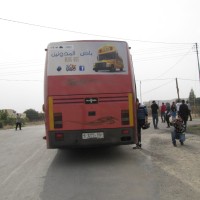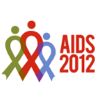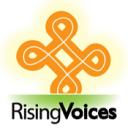Rising Voices note: This post is part of the feature commemorating RV's 5th Anniversary.
In 2008 Kenyan blogger Serina Kalande led a working group to discuss how citizen media can best be used to encourage and expand the dialogue on HIV/AIDS. The discussion triggered a series of online chats to pinpoint concrete steps that could be taken to support those working in this area and give them a greater voice.
The result? The following year the “Blogging Positively” e-guide was launched, providing tips on the best ways for HIV/AIDS activists, whether they’re facilitators or teachers, to use citizen media in their work. The guide also contains a collection of case studies and interviews, spotlights some of the leaders and veterans of the HIV-positive blogging community and has valuable resources for new bloggers just getting started. The title of the guide was coined by Kenyan blogger Daudi Were and it was authored by Janet Feldman of the HIV/AIDS organizations KAIPPG and ActAlive.

Image of HIV red ribbon by Flickr user Bitpicture under CC BY-NC-ND 2.0.
The guide aims to further encourage the use of citizen media to connect people interested in HIV/AIDS work and to help tell the stories of the millions of people impacted by this disease around the world. Feldman was interviewed in 2009 for Rising Voices, in which she describes why she believes the guide is significant. She said:
It is crucial to hear from those who are HIV-positive, and to ensure that their voices are heeded, supported, and amplified. Even in the context of related nonprofit work, people living with HIV/AIDS are sometimes not consulted or brought into activities designed with them in mind. People living with and affected by HIV/AIDS should be central players in program creation and implementation, decision-making, and policy formulation related to addressing the pandemic. Many changes thus need to be made, and blogging can help to do that, because it is a powerful medium both for self-expression and for influencing others. A popular slogan says it all: “nothing about us, without us!.”
The guide is now available in five languages, including Spanish, French, Swahili and Russian, with Arabic on the way. It can be downloaded and used freely by organizations and individuals working in the field of HIV/AIDS education, prevention and treatment. The guide is licensed under a Creative Commons Attribution-NonCommercial-ShareAlike 3.0 Unported License.
To complement the guide and help put a personal face on the pandemic, a map-based directory was created in 2008 of HIV-positive bloggers and groups who blog about the disease. More and more such bloggers have been joining the blogosphere, as showcased in the map. Many of these bloggers have bravely defied stigma and discrimination to communicate their situation and express their opinions to the rest of the world.

The Blogging Positively community also used citizen media last year to commemorate World AIDS Day on December 1, to help further expand the HIV/AIDS conversation. Rising Voices invited global users to tweet about issues related to the disease. Using the hashtag #BlogPos (blogging positively) and #WAD11, many tweeted about various aspects of the disease, providing a snapshot of what is happening around the world. Some tweets included:
@AdVerse4490: The LGBT community is at-risk for HIV in T&T. Not because of unsafe sex, but unsafe spaces. LGBT Discrimination = HIV #WAD2011 #BlogPos
@serina_k: Tribute to Ruthie, an AIDS orphan http://serinaserina.wordpress.com/2011/12/01/tribute-to-ruthie/ #BlogPos #WAD11
@Zeyadsalem: (Zeyad Salem) Imagine a person w a chronic disease and cannot speak up coz people would defame him and deny him the care he needs #WorldAIDSDay #Blogpos
The Blogging Positively working group continues its efforts to encourage the use of citizen media to spark and sustain these conversations about HIV/AIDS and its impact on communities. Activities include regular blog posts on related topics, including highlighting the work of Rising Voices grantees such as Repacted in Kenya and HIV/AIDS activist Leah Okeyo, and the development of a Blogging Positively teaching curriculum for use in workshops and classrooms.
Individuals and organizations who are interested in this work can join the Blogging Positively discussion group by subscribing here. Contact the working group by emailing us at: eddie [at] globalvoicesonline [dot] org.




2 comments
HIV effected people are also living beings don’t behave rude with then. They also have right to live like a common people.
It’s great how Serina is helping people afflicted with AIDs use social media as a vehicle for getting their voices heard. So often it seems like activism is by and large about victims, but not by victims. This should help promote a greater understanding of the issues those diagnosed with HIV by those not suffering from it. Thanks for spreading awareness of this guide, RV. Word needs to get out!